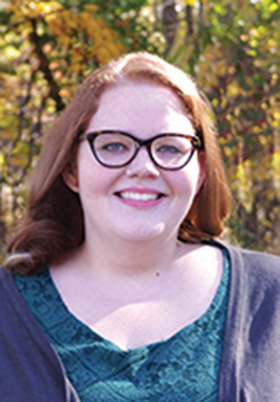Elizabeth Hook
Spring
2018
Alumni Spotlight
Elizabeth Hook
BS Physics, Rhodes College
 What she does:
What she does:
Hook works as a contractor for NASA Applied Sciences in the Applied Remote Sensing Training Program (ARSET). ARSET provides training to professionals who may not have a science background (such as firefighters, journalists, and air quality and health professionals), instructing them on how to use satellite data and imagery and incorporate this data into their work. At NASA, Hook’s role is to manage training logistics, edit and write informational materials and reports about ARSET, and coordinate the process of translating materials into Spanish. She also promotes the ARSET training programs.
How she got the job:
Hook earned her bachelor’s degree in physics at Rhodes College and gained communications experience as a communications specialist at both the SPS National Office and the American Physical Society (APS). She attributes much of her success in the science communication field to these early positions and found them to be valuable in discerning her future career path.
Best part of her job:
“I love that we get to help other people use data in their everyday lives. It’s an interesting mix between informal and formal education, and I like that we get to help people use NASA data and Earth observations to solve problems.”
Most challenging part about her job:
ARSET typically holds 15 training sessions every year, serving around 4,000 attendees. Hook and her colleagues produce a lot of materials for the sessions, and there are a lot of logistical moving parts. Though it can be a challenge to manage, it has helped Hook to develop strong attention to detail and understanding of how things can best work together.
What advice does she offer to undergrads interested in science communication?
“Something I still struggle with, but is so critical to learn, is how to give and take good feedback. Most people are trying to do their best and create the best thing they can—do the best research, reach the most people. And it can be really difficult to separate feedback and criticism from self-worth. If you can use that feedback to grow, you'll become better at what you do and your job. And if you can learn how to give good feedback, that's so invaluable to working in a team environment.”
Why is it important for scientists to be good communicators?
“I think scientists have a responsibility to study the world and attempt to make it a better place. A big component of that is that people understand what you're doing. If you can't articulate why your research is important, no one will want to fund it. If you aren't good at explaining your research, people just won't be interested. Especially at a time when so many people don't believe in the scientific process and there's so much misinformation around, being able to relate to people and speak to them where they're at is so very important.” //
